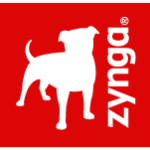Category: Mobile Game Research
Zynga: a Turnaround in Process
 With projected revenue of $763 million in 2015, a market cap of $2.7 billion, cash and securities of $1.1 billion and no debt, Zynga (NASDAQ: ZNGA) is a pioneer in the market for interactive social video games. In less than eight years, Zynga has catapulted itself into the ranks of the world’s largest video game companies, with 100 million monthly active users, and 1.1 million monthly unique payers. Best-selling games include Farmville 2, Zynga Poker, Hit it Rich, and Words with Friends, which account for about 75 percent of sales, while the company’s other 30-plus games account for the remainder. Zynga’s products are available on a wide variety of computer platforms including PCs, laptops, smart phones and tablets, and support major commerce platforms including the Apple iTunes store, Amazon.com, Google Play, and Facebook.
With projected revenue of $763 million in 2015, a market cap of $2.7 billion, cash and securities of $1.1 billion and no debt, Zynga (NASDAQ: ZNGA) is a pioneer in the market for interactive social video games. In less than eight years, Zynga has catapulted itself into the ranks of the world’s largest video game companies, with 100 million monthly active users, and 1.1 million monthly unique payers. Best-selling games include Farmville 2, Zynga Poker, Hit it Rich, and Words with Friends, which account for about 75 percent of sales, while the company’s other 30-plus games account for the remainder. Zynga’s products are available on a wide variety of computer platforms including PCs, laptops, smart phones and tablets, and support major commerce platforms including the Apple iTunes store, Amazon.com, Google Play, and Facebook.
Versus three years ago when it launched its IPO and Facebook’s desktop platform accounted for 90 percent of revenue, Zynga has reduced its exposure to the Facebook platform, and increased revenue generated from mobile platforms, such as iTunes, Google Play, and Amazon.com. As of the end of Q1, roughly 59 percent of sales came from mobile platforms, while 37 percent came from Facebook. With the interactive game industry undergoing a long term shift toward mobile devices, and with over 50 percent of monetized game play expected to occur on mobile devices in 2015, Zynga appears to be well positioned to harvest this shift.
Impatient with the results achieved by CEO Don Mattrick, who was hired by Zynga’s board about 18 months ago, Mark Pincus, Zynga’s founder and chairman, recently replaced Mattrick as CEO and simultaneously announced four major changes to the company’s strategy. These include: (1) a workforce reduction of 18 percent; (2) a focus on accelerating new products to market; (3) an exit from the runner and sports game categories; (4) a shift away from the company’s data centers in favor of Amazon Web services. With the changes announced by Pincus, we have a better framework for assessing the company’s progress. As a result we will focus on the pace at which Zynga:
(1) Delivers meaningful revenue from new action strategy and Match 3 games;
(2) Updates its evergreen titles, and gains share in existing product categories;
(3) Reduces its bloated cost structure relative to peers, such as King Digital and Electronic Arts;
(4) Begins to articulate a cohesive plan to achieve $2 billion in annual sales;
Despite an inglorious post-IPO history, Zynga still has a strong balance sheet, bolstered by over $1 billion in cash and no debt. The company is hovering near break-even, and even though it will be some time before Zynga demonstrates real earnings power, we believe that purchase of the stock at current levels may provide rewards to the long-term investor.
